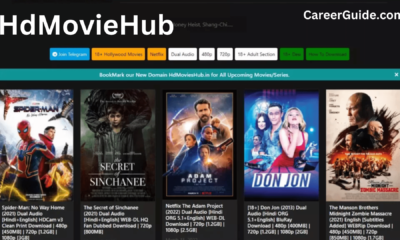Blog
Medical Billing Process and Practices to Reduce Costs
Published
2 days agoon
By
Berlin
Medical billing for medical departments within the hospital and clinic can improve the efficiency to enhance the administration performance with medical facilities and can reduce the cost of expenses.
For the expense related operations it is necessary to perform every task with having the record in your database. This implementation signifies the medical procedure easier to check all aspects at the right time, the procedure of sending out invoices for any type of service that you are giving to the patients with their health plans such as consulting fee or medication receipt.
Although the medical processes that are involved in healthcare expenses play an important role in a financial statement against the healthcare facilities, well performed efficient processing through a software can identify your spending and collection to see profits.
In this piece of writing i am going to talk about the awareness of medical billing with procedures and methods to complement that can simplify the process between the doctor and a patient
What Does Medical Billing Involve?
The process of medical billing with correct coding that will help the doctors and healthcare centers for sending invoices to the patient and as well as the insurance companies. Medical procedure is necessary for medical facilities to get involved for appointments tests to complete patient treatment.

The charging system may change based on the country laws of different areas and can also be modified due to updates in regulations and guidelines from regulatory authorities.
Significance of Maximizing Medical Billing
It is necessary to optimize medical billing in order to maintain sufficient cash flow for the healthcare facility, prevent financial losses, and hasten the receipt of payment for provided podiatry billing services as an example.
In addition, effective management of billing can help lower operational expenses, boost team efficiency, and improve patient contentment.
Ways to Improve the Billing Procedure.
Integration of systems
Integrating hospital management systems with billing systems can greatly decrease duplicated efforts and time spent on manual tasks. This also reduces the chances of data transfer mistakes, enhancing the precision of the billing procedure.
Systematization
The proper coding of procedures and diagnoses carried out is crucial for effective billing. Precise recording of information
Systematization
Efficient billing relies on accurately coding the procedures and diagnoses conducted. Precise documentation is crucial to provide the billing team with all necessary information. Utilizing electronic medical record systems can prevent coding mistakes and enhance overall effectiveness.
Check for eligibility
The patient’s reach confirming the eligibility is an important part of the billing process. It is very important to sortout the patient’s treatments and diagnosis separately according to their medicine and disease. It will help the doctor to manage a lot of patients’ diagnosis records easily. The receipt and payment denials can be less risky than without record of payments.
Training and Certification of the Team
Having a well-prepared and modern team is critical for the medical billing process to be successful. It is crucial to provide training for employees who are directly involved in this area to ensure they grasp medical coding regulations, health insurance provisions, and pertinent laws.
A team that is properly trained will prevent errors, minimize rework, and respond proactively to issues to prevent delays in delivery.
Audit Carried Out within a Company
Creating an internal audit can effectively uncover potential errors in billing and collections procedures. By carefully examining records and documents, one can pinpoint discrepancies, coding mistakes, excessive embellishments, and other problems that may have an adverse effect on income.
Internal auditing allows for the identification and resolution of issues before they impact the organization’s finances, leading to improved financial forecasting.
Techniques for cutting expenses when invoicing healthcare charges
Automation of Processes
One key approach to improve medical billing is to implement automated systems. Utilizing billing and collection management software can greatly enhance process efficiency by reducing human errors and simplifying bureaucratic tasks.
By utilizing automation, it is achievable to:
- Record medical procedures performed automatically.
- Submit electronic invoices to insurance firms and health plans.
- Track the progress of collections and recognize outstanding payments.
- Decrease processing time to accelerate the receiving cycle.
- Observing and assessing performance metrics
Creating specific key performance indicators (KPIs) related to medical billing enables the healthcare institution to track advancement and pinpoint possible obstacles in the procedure.
Keeping track of performance indicators is crucial to guaranteeing the effectiveness of the billing procedure. A few of the main indicators to keep track of are:
Reject rate: the percentage of fees not approved or declined by medical facilities.
Average time spent between receiving a service and making the payment.
Rate of invoice errors: The number of errors discovered following the issuance of the invoice.
Discussion with health insurance firms
If you want to improve your medical processes safely, you can get engaged with the healthcare billing facility providers who will create all databases for you. So, for the success everyone must need to manage contacts and patient records through the form. This decision can lead you to reduce costs against the billing process. How? Let’s discuss!
- Improved payment methods for services rendered.
- Decrease in payment rejections and refusals.
- Increased flexibility in handling invoices.
Keep Avoiding
Disallowances are rejections or reductions made by insurers because of errors in billing or lack of proper documentation. The risk of disallowances decreases with more accurate and comprehensive documentation.
Outsourcing of billing services
In certain situations, it can be beneficial to delegate the billing process to specialized firms. This can cut down on operational expenses and guarantee that skilled professionals manage this intricate task.
Control of inventory and costs related to materials
It is crucial for medical facilities that provide treatments with materials and medications to effectively manage their inventory and expenses to minimize unnecessary costs and waste. Negotiating with suppliers can lead to obtaining more competitive pricing as well.
Final thoughts
Payment of medical expenses is a complicated procedure that necessitates precision, organization, and understanding of current regulations. Medical institutions can lower operational expenses, prevent rework, and improve financial management by implementing strategies like task automation, team training, and internal audits.
In addition, by reducing unnecessary fees and securing beneficial agreements with insurance companies, it is feasible to guarantee fair compensation for rendered services, which helps maintain the institution’s financial stability and high-quality patient care.
By putting these strategies into action, healthcare organizations will be more prepared to tackle industry obstacles and deliver top-notch allergy & immunology billing services, all while maintaining strong and stable financial practices such as benefits of senior care services.
You may like

Damian Lillard Net Worth

The Ultimate Guide to Summer Fun at Lake Clementine

How To Build a Metal Raised Garden Bed

Simcity Forum: Discovering the 5 Benefits of Simplicity

Wesley Snipes on Art, Excellence, and Life After Prison

Cufflink Couture: Elevating UK Style with Exquisite Gold and Silver Designs

Broadway Shows by Year – Opened in 2023

Medical Billing Process and Practices to Reduce Costs

Andre Hakkak: A Financial Titan’s Journey and Net Worth Breakdown

Michelle Smallmon: A Comprehensive Overview

What is Evırı? Everything You Need to Know

Comprehensive Guide to Roofing Takeoff Services, Piping Estimating Services, and Drywall Takeoff Services

Maximizing Efficiency and Accuracy with Construction Takeoff and Estimating Services

Unveiling the Mysteries and Benefits

Cape Cod Home Additions: Enhancing Your Seaside Living
Showcase Of Ark: Survival Evolved (2017) Icons And Banners

Los Angeles News and Events

Metal Gear Solid 3 Remake: Everything We Know So Far

Pedrovazpaulo Executive Coaching

A Guide to a Healthy Life with Well Health Organic

Damian Lillard Net Worth

The Ultimate Guide to Summer Fun at Lake Clementine

How To Build a Metal Raised Garden Bed

Simcity Forum: Discovering the 5 Benefits of Simplicity

Wesley Snipes on Art, Excellence, and Life After Prison

Cufflink Couture: Elevating UK Style with Exquisite Gold and Silver Designs

Broadway Shows by Year – Opened in 2023

Medical Billing Process and Practices to Reduce Costs

Andre Hakkak: A Financial Titan’s Journey and Net Worth Breakdown








